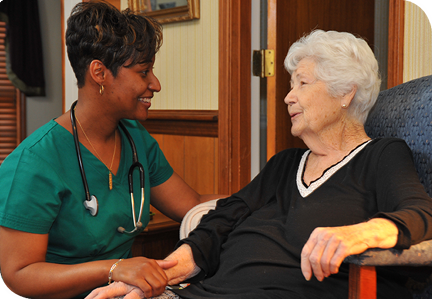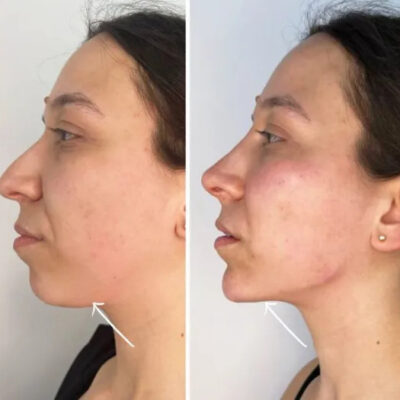Home healthcare provides personalized attention tailored to an individual’s unique needs. Caregivers can create a daily routine that suits the patient’s lifestyle and preferences. Unlike assisted living homes, where residents follow a generalized schedule, Home Healthcare Dubai allows for flexibility and customization. This ensures that the person receives the right level of support while maintaining independence and comfort.
Maintaining Independence and Dignity
One of the most significant advantages of home healthcare is the preservation of independence. Individuals can continue living in familiar surroundings, performing daily activities at their own pace. This approach helps maintain dignity and self-respect, which can sometimes be compromised in assisted living homes. Personal routines, hobbies, and personal spaces remain intact, promoting emotional well-being and a sense of control over one’s life.
Familiar Environment Reduces Stress
Being in a familiar environment can greatly reduce stress and anxiety. Home healthcare allows individuals to remain in a place where they feel safe and comfortable. Familiar surroundings, personal furniture, and cherished belongings contribute to a sense of security. In contrast, moving to an assisted living home often involves adjusting to a new environment, which can be overwhelming and emotionally challenging for many people.
One-on-One Attention from Caregivers
Home healthcare often offers one-on-one attention that is difficult to achieve in assisted living homes. Caregivers focus on the individual’s specific needs, creating a stronger bond and better understanding of their health and emotional requirements. This personalized approach ensures that care is prompt and precise, reducing the likelihood of missed needs or overlooked concerns.
Flexible Schedules for Daily Living
Unlike the fixed schedules in assisted living homes, home healthcare provides flexibility. Caregivers can adapt their visits and routines to match the patient’s preferences, including meal times, rest periods, and recreational activities. This flexibility allows individuals to maintain a daily rhythm that aligns with their comfort and energy levels, promoting a sense of normalcy and contentment.
Enhanced Emotional and Mental Health
Being surrounded by familiar faces, family members, and a beloved environment can positively impact emotional and mental health. Home healthcare helps prevent feelings of isolation or loneliness, which can occur when moving to an assisted living home. The emotional support from loved ones combined with personalized attention from caregivers, contributes to overall happiness and mental stability.
Safety Measures in a Comfortable Setting
Home healthcare allows for the implementation of safety measures tailored to the individual’s specific needs. Caregivers can ensure that the living space is free from hazards and assist with mobility or daily tasks as required. This creates a safe and secure environment without the need to adapt to unfamiliar facilities or communal living spaces that might not fully address personal safety concerns.

Encouragement of Social Connections
While assisted living homes offer social activities, home healthcare enables individuals to maintain connections with family, friends, and the local community. Regular visits, outings, and participation in community events help prevent social isolation and promote a fulfilling social life. Caregivers can facilitate social engagement while respecting the individual’s preferences and comfort levels.
Promotes Health and Wellness
Home healthcare supports overall health and wellness through personalized routines. Caregivers can assist with exercise, nutrition, and daily activities in ways that match the individual’s needs. Maintaining a familiar routine helps reinforce healthy habits and encourages consistent attention to physical and emotional well-being.
Tailored Assistance for Daily Tasks
From meal preparation to personal hygiene, home healthcare offers support customized to each person’s needs. This tailored assistance ensures that essential daily tasks are performed safely and efficiently while allowing the individual to maintain as much independence as possible. The focus is on enhancing quality of life without unnecessary restrictions or institutional routines.
Flexibility for Family Involvement
Home healthcare provides opportunities for family members to actively participate in care. Families can engage in daily activities, share responsibilities, and provide emotional support while ensuring the individual receives professional care. This involvement strengthens relationships and allows families to maintain a meaningful connection without the separation often required in assisted living homes.
Comfort of Personalized Lifestyle Choices
Individuals can continue enjoying their preferred lifestyle while receiving home healthcare. Meal preferences, leisure activities, sleep patterns, and daily routines can all be maintained according to personal choices. This continuity promotes contentment and reduces stress that may result from adapting to new rules or environments in an assisted living home.
Integration with Community Resources
Home healthcare allows seamless integration with community resources such as local recreational programs, social groups, and wellness activities. Caregivers can coordinate visits and participation, enabling individuals to remain active and engaged in their communities. This connection to local networks fosters a sense of belonging and purpose.
Emotional Support and Companionship
Caregivers in home healthcare provide more than physical assistance; they offer companionship and emotional support. This one-on-one interaction fosters trust and reduces feelings of loneliness. Emotional support plays a critical role in overall well-being and can positively impact health outcomes.
FAQs
What Types of Care Can Be Provided at Home?
Home healthcare can include assistance with personal hygiene, medication management, mobility support, meal preparation, companionship, and coordination of daily activities. Care is customized to match the individual’s specific requirements.
How Does Home Healthcare Promote Independence?
By allowing individuals to perform daily tasks at their own pace and maintain personal routines, home healthcare fosters independence. Caregivers provide support only where needed, enabling self-reliance and confidence.
Can Home Healthcare Improve Mental Well-Being?
Yes, being in a familiar environment with personalized care and emotional support reduces stress, anxiety, and feelings of isolation. Mental well-being is enhanced through companionship, engagement in preferred activities, and social interaction.
How Is Safety Ensured in Home Healthcare?
Caregivers assess the living environment for potential hazards, assist with mobility, and implement safety measures tailored to individual needs. This ensures a secure and comfortable space without requiring relocation to institutional settings.
Conclusion
Home Healthcare in Dubai offers a comprehensive, personalized, and flexible alternative to assisted living homes. It emphasizes independence, emotional well-being, and comfort while providing the necessary support for daily living. By remaining in a familiar environment with one-on-one attention and tailored care, individuals experience enhanced quality of life and a supportive, safe, and engaging home environment.



